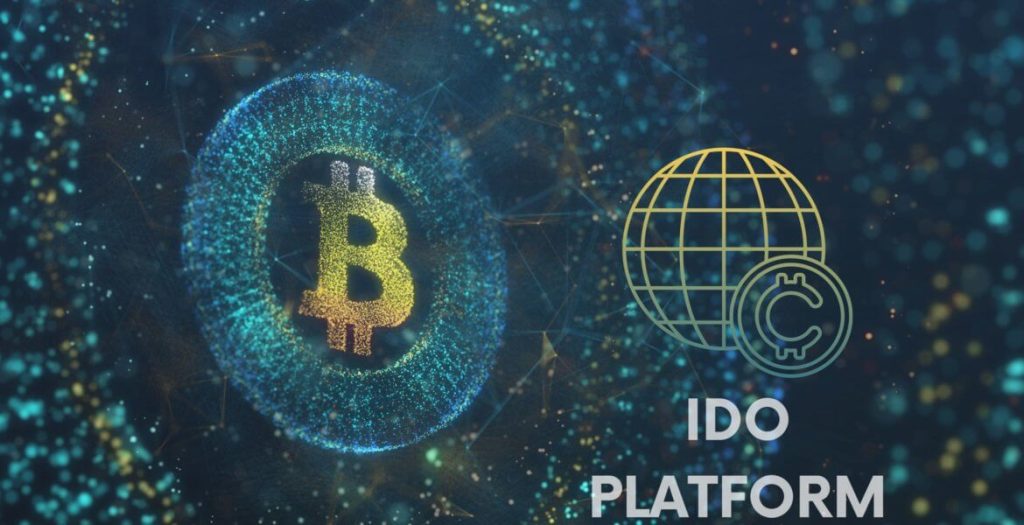The landscape of cryptocurrency fundraising has undergone a remarkable transformation since the initial coin offering (ICO) boom of 2017, evolving through security token offerings (STOs) to today’s predominant model: the Initial DEX Offering (IDO). These decentralized launch platforms have emerged as the primary gateway for retail investors to access token sales at their earliest stages, potentially capturing value that was previously reserved for venture capital firms and wealthy angels. The promise of getting in on the ground floor of promising blockchain projects at favorable prices has made IDOs one of the most sought-after opportunities in crypto—but also one of the most perilous. As the space has matured, a complex ecosystem of launchpads has developed, each with different models, requirements, and risk profiles, creating both unprecedented access and new challenges for investors seeking to navigate this high-risk, high-reward landscape.
IDO platforms represent a fundamental shift in how blockchain projects distribute tokens and raise capital. By leveraging decentralized exchanges and automated market makers, these platforms aim to create more fair and accessible fundraising mechanisms while reducing the barriers that traditionally separated early-stage investing from the general public. However, this democratization comes with significant complexities: the technical sophistication required to participate, the extreme volatility of newly launched tokens, and the persistent risk of scams or fundamentally flawed projects. For investors, understanding how to evaluate IDO platforms, assess individual opportunities, and manage the inherent risks is essential for participating in this market without falling prey to its numerous pitfalls. This article will provide an overview of popular launchpads, analyze the risks inherent in IDO participation, and establish practical screening criteria for evaluating opportunities.
The Launchpad Landscape: Major IDO Platforms and Their Models
The IDO ecosystem has diversified into several distinct models, each with different advantages and participation requirements.
Tier-Based Launchpads
Platforms like Polkastarter, DAO Maker, and TrustSwap use tiered systems where access and allocation sizes depend on the amount of native tokens held:
- Polkastarter: Requires holding POLS tokens with different tiers (Whale, Shark, Dolphin) determining guaranteed allocation rights. Uses a lottery system for lower tiers.
- DAO Maker: Offers “Strong Holder Offerings” where allocation is proportional to DAI holdings, reducing the need for native token speculation.
- Participation mechanics: Typically involve staking the platform’s native token to earn points or guaranteed allocation spots, creating inherent demand for the token but also potential conflicts of interest.
Reputation-Based Platforms
Some platforms prioritize quality over quantity through curated approaches:
- CoinList: Focuses on higher-quality, institutional-grade projects with stricter due diligence but limited access through lotteries or queue systems.
- Seedify: Uses a combination of tiered access and reputation scoring, rewarding active community members and those with historical successful participation.
Community-Centric Models
Platforms like Avalaunch and Solanium focus on specific ecosystems:
- Ecosystem specificity: These launchpads exclusively feature projects building on particular blockchains (Avalanche, Solana), providing targeted exposure but lacking diversification.
- Community alignment: Often have stronger community governance and more transparent selection processes tailored to their specific blockchain values.
Access Models Comparison
Different platforms employ various distribution mechanisms:
- Guaranteed allocation: Highest-tier participants receive fixed allocation amounts regardless of demand.
- Lottery systems: Lower-tier participants enter drawings for random allocation spots.
- FCFS (First-Come, First-Served): Remaining tokens after guaranteed allocations are distributed on a first-come basis, often causing gas wars and network congestion.
- Hybrid models: Many platforms combine elements of these approaches to balance fairness with rewarding committed supporters.
Navigating the Risks: Understanding IDO Pitfalls and Challenges
Participating in IDOs involves numerous risks that extend far beyond typical cryptocurrency investing.
Technical Execution Risks
The mechanics of IDO participation create unique technical challenges:
- Gas wars: During popular sales, participants engage in bidding wars for transaction priority, sometimes paying more in gas fees than the value of their allocation.
- Smart contract vulnerabilities: Launchpad and project smart contracts may contain bugs or vulnerabilities that could be exploited.
- UI/UX failures: Complex participation processes can lead to user errors, missed deadlines, or failed transactions.
- Network congestion: High demand can overwhelm blockchain networks, preventing timely participation.
Market and Valuation Risks
IDO investments face substantial market challenges:
- Valuation disconnect: Private rounds may have established valuations significantly lower than IDO prices, creating immediate downward pressure.
- Immediate dilution: Large portions of tokens often unlock immediately after launch, creating selling pressure from early investors and team members.
- Low float manipulation: Initially small circulating supplies can be easily manipulated by whales or the project team.
- Liquidity risks: Thin initial liquidity can lead to extreme volatility and difficulty exiting positions.
Project Fundamental Risks
The nature of early-stage investing presents inherent challenges:
- Product risk: Most projects launch before having a working product, making technical execution uncertain.
- Team risk: Anonymous or inexperienced teams may lack the capability to deliver on promises.
- Regulatory uncertainty: Evolving regulations may negatively impact projects that seemed compliant at launch.
- Token utility risk: Many tokens lack clear utility or value accrual mechanisms beyond speculation.
Platform-Specific Risks
The launchpads themselves present additional concerns:
- Curation quality: Platform due diligence processes vary widely, with some prioritizing quantity over quality.
- Conflicts of interest: Platforms may favor projects in which they have invested or that will drive demand for their native token.
- Centralization risk: Despite decentralized branding, most launchpads remain centrally controlled entities.
- Sustainability: Launchpad business models may not prove sustainable long-term, affecting their ability to support projects.
Screening Framework: Criteria for Evaluating IDO Opportunities
Developing a systematic approach to evaluating IDOs is essential for separating potential opportunities from likely failures.
Project Fundamentals Assessment
A comprehensive project evaluation should cover multiple dimensions:
- Team evaluation:
- Member backgrounds and relevant experience
- Previous project track records
- Technical capability assessment
- Advisor quality and engagement level
- Technology assessment:
- Whitepaper quality and technical depth
- GitHub activity and development progress
- Technical innovation and competitive advantage
- Audit status and security practices
- Tokenomics analysis:
- Token distribution fairness and transparency
- Vesting schedules for team and investors
- Inflation mechanisms and emission schedules
- Value accrual mechanisms and utility design
- Market potential:
- Total addressable market size
- Competitive landscape analysis
- Product-market fit assessment
- Growth strategy feasibility

Platform Evaluation Criteria
The choice of launchpad itself requires careful consideration:
- Track record analysis:
- Historical project performance post-IDO
- Average returns across multiple projects
- Project survival rate and failure analysis
- Long-term performance beyond initial pump
- Due diligence process:
- Transparency of selection criteria
- Technical audit requirements
- Legal compliance standards
- Ongoing project support and monitoring
- Tokenomics alignment:
- Platform token utility beyond access rights
- Value accrual mechanisms for token holders
- Token distribution and supply dynamics
- Alignment between platform and project success
Market Condition Assessment
External factors significantly impact IDO success:
- Market cycle timing:
- Overall cryptocurrency market conditions
- Sector-specific sentiment and trends
- Historical performance during similar market phases
- Valuation analysis:
- Comparison with similar stage projects
- Fully diluted valuation assessment
- Private round valuation comparison
- Reasonableness relative to development stage
- Community and hype factors:
- Social media engagement quality
- Community size and activity level
- Influencer endorsements and credibility
- Marketing strategy effectiveness
Participation Strategy: Maximizing Opportunities While Managing Risk
Successful IDO investing requires more than good project selection—it demands careful strategy execution.
Portfolio Construction Approach
Implementing disciplined portfolio management is essential:
- Position sizing: Allocate no more than 1-3% of portfolio to any single IDO investment
- Diversification: Spread investments across multiple projects, sectors, and launchpads
- Staging strategy: Consider dividing investments between IDO price and immediate post-listing price
Risk Management Techniques
Several strategies can help manage IDO risks:
- Profit-taking framework: Establish predetermined profit-taking levels (e.g., sell 50% at 2x, 25% at 5x)
- Stop-loss implementation: Set mental or actual stop-losses to limit downside
- Time-based exits: Establish maximum holding periods for re-evaluation
- Hedging strategies: Use options or short positions to hedge overall portfolio risk
Due Diligence Process
Developing a systematic research approach:
- Checklist implementation: Create a standardized due diligence checklist for all opportunities
- Community engagement: Participate in project communities to assess developer responsiveness and community quality
- Third-party verification: Cross-reference project claims with independent sources and auditors
- Continuous monitoring: Establish ongoing evaluation criteria rather than one-time assessment
The Future of IDOs: Evolution and Challenges
The IDO landscape continues to evolve rapidly, presenting both new opportunities and challenges.
Regulatory Developments
Changing regulations will shape the future of IDOs:
- Security token clarification: Regulatory clarity may force some projects to restructure as security offerings
- Investor accreditation: Some jurisdictions may impose investor qualification requirements
- Cross-border compliance: Increasing regulatory divergence may complicate international participation
Technological Innovations
New technologies are improving IDO mechanisms:
- Fairer distribution models: New mechanisms like batch auctions and bonding curves are creating more equitable distribution
- Improved liquidity solutions: Better market making and liquidity provisioning are reducing initial volatility
- Enhanced due diligence: AI and blockchain analytics are improving project evaluation capabilities
Market Maturation
As the space matures, several trends are emerging:
- Professionalization: Increasing involvement of institutional investors is raising quality standards
- Specialization: Niche launchpads focusing on specific sectors or technologies are emerging
- Integration: Closer integration with traditional finance and regulatory frameworks is occurring
Conclusion: Navigating the IDO Landscape with Realistic Expectations
IDO platforms have fundamentally democratized access to early-stage cryptocurrency investments, but they have not eliminated the inherent risks of investing in unproven projects. The opportunity to participate in token sales that were previously restricted to venture capital firms comes with significant responsibilities: the need for thorough due diligence, realistic expectations, and disciplined risk management.
Successful IDO investing requires recognizing that most projects will fail or underperform, while a small minority may generate exceptional returns. The key is to develop a system that allows for participation in potential winners while minimizing exposure to losers through careful selection, appropriate position sizing, and systematic risk management.
As the space continues to evolve, investors must remain adaptable, continuously updating their evaluation criteria and participation strategies. The most successful participants will be those who combine healthy skepticism with open-mindedness, technical understanding with market awareness, and opportunistic enthusiasm with disciplined risk management.
Ultimately, IDOs represent just one tool in the cryptocurrency investor’s toolkit—potentially valuable for those who approach them with appropriate caution and sophistication, but dangerous for those who see them as guaranteed opportunities for easy profits. By understanding the landscape, acknowledging the risks, and implementing a structured approach, investors can potentially benefit from this innovative fundraising mechanism while managing its substantial risks.

























